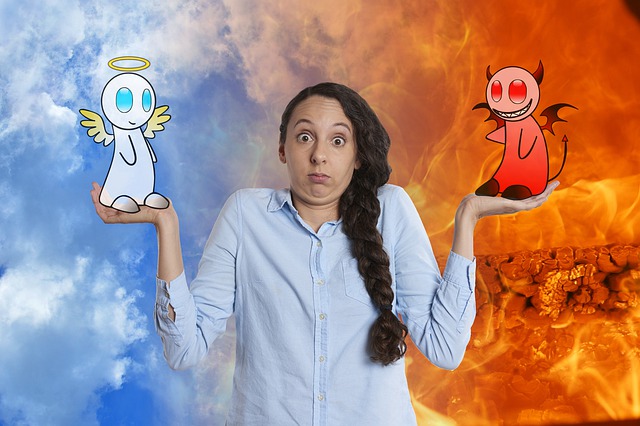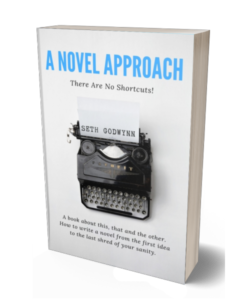People Don't Read Anymore!
A.P. Atkinson
One of the biggest complaints we hear today is how people don’t read books anymore. It’s a growing concern, and it’s one of the most serious issues facing the publishing industry and authors today. But, is it a fair criticism? Does it even make the slightest sense?

The world is a changing place. The nature of existence is that it’s dynamic and that we should never expect things to remain the same. Some changes are positive, and others are less so, but it’s inevitable in either case.
What drives change is often not what we think it is. Think of yourself walking along a path in the woods. As you walk along you come to a fork in the road where you can equally turn left or right and the outcomes are essentially the same. On one side, the path is clear. It’s been cleared and has a nice, safe route with a more scenic view. On the other side, you see a more hostile territory. The way is darker, and strewn with rubbish.
Which would you choose?

It’s easy to assume the market is driven by the consumer, but it’s often the other way around.
You see, there’s a defect in human nature, and it’s one that is ruthlessly exploited. That which seems familiar to us, that we see other people doing, often appears correct. We tend to accept that what the crowd is doing is the thing we’re meant to be doing ourselves. It’s legacy survival programming based on the principle that individual humans can’t deal with the monumental difficulties involved with working every single thing out for themselves. We naturally trust that older, better and wiser people have it all figured out. We trust their judgement, especially when we aren’t sure about something ourselves. This leads to the masses being led by horrendously awful politicians, and has resulted in ridiculous movements for change founded on very shoddy logic. It’s also why media and advertising likes to create ‘role-models’ and other iconic characters for us, who then present their opinions to us as facts.
You only have to look around to see examples of this today.
If you are standing at your fork in the road and a dozen very smart, very healthy, very normal-looking people went off down the safe path, and only a few very bedraggled people went the other way, we’d be much more inclined to choose the safer one.
In any case, the path has largely made the choice for us. We have one that looks very pleasant and one that looks like it might lead us into difficulty. Most of us wouldn’t deliberately want to make our lives harder, so we’re very strongly inclined to take the easier, and probably better, option.
This is very much how the market works. Quality goods that encourage free-thinking or the development of intelligence are expensive, and our media icons look down on them. You certainly don’t hear of many sport-stars talking about how much they enjoy a good political debate. On the contrary, they laugh at people who are smart and hold them to ridicule.
Books, the ultimate expression of freedom and intelligence, have become a victim of that mentality.
We have a book-market where creative writing is littered with vampire stories and poorly-written pieces of trend-following fiction. We have authors celebrating censorship of anything that offers a different opinion to the mainstream. We have an increasingly fixed agenda that ‘activists’ promote and anything that goes even slightly against it is considered dangerous, when the real danger comes from a lack of intelligent discussion. It’s very rare that publishers back something truly ground-breaking or inventive, preferring to usually take the safer option.
Costing of books is increasingly prohibitive. We’ve reached a point where a pulp-fiction novel is sold at around a fifteen dollar price-point, and around ten for an E-book. This is a slap in the face to a reader who would happily enjoy reading something different every week. It hurts even more when young people are increasingly turning to their phones and playing games they downloaded for free.
Can anyone please explain to me how it’s cheaper to produce a game, to the point where it’s literally given away for free, than it is to produce a book? A book is developed by one writer before being edited, proofed, and then presented to the audience. A game takes a whole host of developers and involves various engines to make it work, all of which have to be licensed and paid for.
It seems clear that the way we’re producing, selling and marketing books needs to change. It’s almost as if there’s a deliberate movement towards keeping people from being smart and free-thinking, and a cynical person might come to believe that.
So certainly, we’ve hidden books down the difficult path. We’ve made them expensive to buy and we’ve flooded the market with works that follow trends and don’t break new ground. The publishing industry has become stale and turns out very little that’s of interest to readers.
The other path has free games, it offers easy availability of entertainment and it doesn’t ask anything of you.
The path to books might be harder but, as it turns out, it’s more rewarding and you’re likely to get a lot more from it. But it is harder, and that’s something that’s putting off more and more people. Readers are being sold short, and it’s certainly not their fault that they’re choosing to look for other ways to spend their free time.
So if we say that people don’t read anymore, we are making a sweeping statement that simply isn’t true. People are reading and they’re reading in droves, but they’re reading classic literature, stories from decades, even centuries ago, and they’re shunning the latest offerings.
The quality of readers hasn’t declined, but the quality of the books we’re offering them has. Our audience is looking for Kafka, Orwell, Dickens and Alcott and we’re delivering sparkling vampires and fifty shades of weird sex.
Yes, it’s certainly true that a large number of people have turned their back on reading, and nobody is debating that. But those people, the ones we’ve lost, were reading for entertainment and the books we’re publishing aren’t really entertaining anymore. Those people have chosen video-games, television and short films on streaming sites. Essentially, they were never serious readers in any case, they were just looking for something to fill in the time, and something easier came along.
The audience a hopeful novelist is trying to reach is still there, and in the same numbers. People do still read but the way they read has changed. In the days of self-publishing they’re more cautious and, with prices souring and resources dwindling, they’re choosing more carefully than ever before. The audience is getting rightfully more selective; they’re making harder choices when it comes to new authors because more is at stake. They’re facing demands on their time and their pockets, and the vast, overwhelming majority of books probably aren’t equal to their expectations.
Yes, people still read, and it’s ridiculous to say otherwise. When I hear an author shaking their head and grumbling that their book is failing because people don’t read, I usually suspect it’s not the readers that are the problem.
The industry needs to change. For too long, the market has tried to dictate the trends to the audience, has tried to nudge them into reading the work it wants to publish. The drive towards an simplicity has dismally failed both the readers and the writers of this world. Ironically, an industry putting out a high-quality product would make more stable profits but there seems to be a deliberate movement towards short-term money-grabs and forced agendas.
If this was any other industry, this would all be fair enough—the product would die out and something else would take its place. But, this is literature. We’re talking about work that inspires thought, creativity that sparks a generation, that encourages debate and the free exchange of ideas. We’re talking about what we’re leaving behind for the readers of tomorrow. We’re talking about the indelible mark our generation is making on the future of mankind.

I don’t want to be an author writing in a time when the only things that has a chance of being published is trend-following, cynical cash-grabs. I want my work to stand for itself and to be judged on the merits of me as a writer, not as any other group or label that other people seek to apply on me.
The audience is there. We just need to start showing them respect so that we can earn it back from them. They’ll read our work if it’s worth reading, and they’ll buy our books if they’re worth the money.
People are still reading but they’re demanding better and we need to rise up and give it to them.
Many thanks for reading this article. We hope it was interesting, informative and entertaining. Follow us on social media or share our content on your own pages. It helps us grow so we can create more free content to help you.

